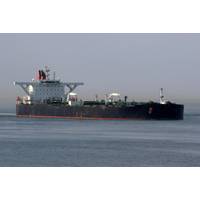Steelhead LNG Plans $30B LNG Export Terminal
A Canadian company jumped into British Columbia's crowded liquefied natural gas (LNG) export fray with a plan to build a $30 billion terminal on Vancouver Island.
Steelhead LNG said it applied to Canadian regulators for permission to export up to 30 million tonnes of LNG a year for 25 years, joining a list of fourteen companies vying to build projects in the Pacific Coast province.
The National Energy Board has already approved export licenses for nine projects in British Columbia. With Steelhead, it has five more under review, as global and domestic companies scramble to build the facilities needed to ship cheap Canadian gas to energy-hungry Asian markets.
"It is a competitive market. If you look at where we are, we're certainly not the first to arrive," said Steelhead Chief Executive Officer Nigel Kuzemko. "But we're an independent, Canadian business, and as such we don't have any of the hang-ups some of the super majors might have."
Many of the front-runners in the race to develop Canada's LNG industry are majors like Royal Dutch Shell Plc (RYDAF) and Chevron Corp, who are concurrently developing rival projects in other parts of the world.
Steelhead, which is focused on one project, is backed by KERN Partners, a Calgary-based private equity firm with C$1.1 billion ($1.03 billion) under management that looks for long-term investment opportunities in Canada's energy sector.
Steelhead's export terminal, which would be designed to produce 24 million tonnes of LNG a year, would be built in Anacla, a remote village about 200 kms (125 miles) northwest of Victoria on Vancouver Island.
Steelhead is working closely with the local Aboriginal community to develop the project, which will also require the construction of a lengthy pipeline to carry the gas from fields in northern British Columbia and Alberta.
The Vancouver-based company does not own gas properties but plans to operate the LNG plant on a type of tolling model - working with producers to secure gas, converting it for them into LNG and then shipping it to final customers.
"We'll look to export gas on a flexible basis from independent companies," said Kuzemko. "We are very relaxed in the type of pricing that is on LNG contracts, because as long as the producers are happy to take that risk, so are we."
Kuzemko told Reuters the company is fully financed at the moment, but will eventually look for partners as the project moves through the development process.
With a long permitting process ahead, the best-case scenario is for Steelhead to see its first LNG shipments in 2022. ($1 = 1.0677 Canadian dollars)
(By Julie Gordon; Additional reporting by Scott Haggett in Calgary; Editing by Jeffrey Benkoe)

